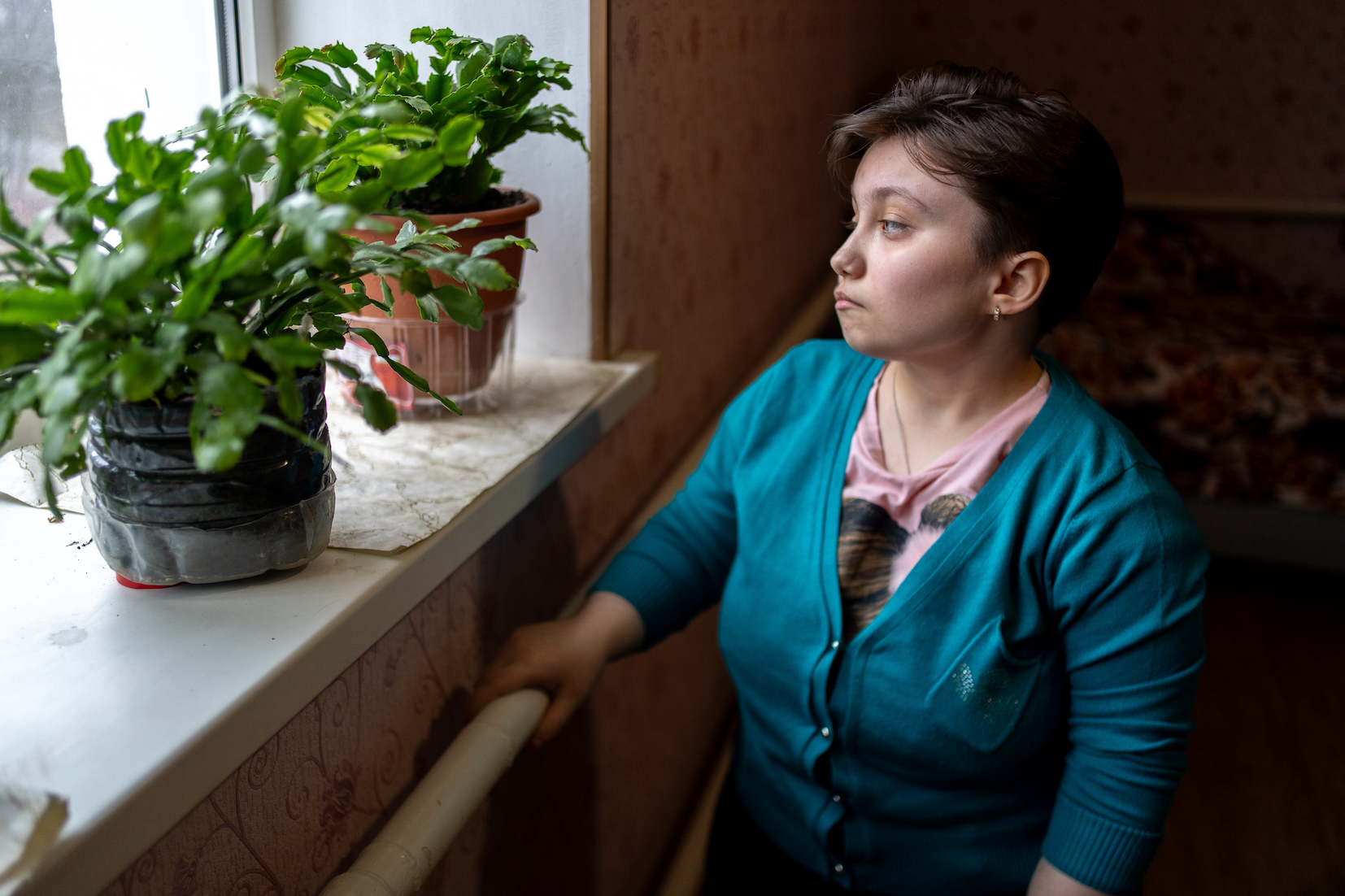‘I don’t know what tomorrow will bring, or where we’ll be,” says 18-year-old Daryna. Her words reflecting a sense of fear, fatigue and unknowns that permeate young lives in Ukraine today.
What is known is the horrific toll that three years of full-scale war has on children.
A staggering one in five children in Ukraine reported in a Unicef survey that they have lost a relative or friend since the escalation of the war. A blunt reminder of the level of grief and loss. One in three teenagers reported that they feel so hopeless and sad that they can’t perform their usual activities.
It’s not surprisingly a bleak outlook that reflects childhoods devastated by war and for children across the east, like Daryna, more than 11 years of conflict.
I first met Daryna five years ago in Zolote, an eastern mining town close to the then frontline. She was one of a handful of children still attending the local school. Daryna explained that not only did she enjoy learning but being in class provided a respite from the threats and sounds of war.
The classes ended with the outbreak of Covid-19 and three years ago the war reached her doorstep. After weeks sheltering in a basement, she fled further west.
 Damage to the paediatric health clinic in Odesa. (Photo: Unicef)
Damage to the paediatric health clinic in Odesa. (Photo: Unicef)
Daryna now lives in a small flat with her uncle and aunt, her caregivers, near the city of Dnipro. “I had plans for the future,” she says, “but the war ruined everything; now the future just doesn’t exist.”
It’s a sentiment shared by others. Teenagers have faced years of isolation and deprivation, affecting their development and wellbeing at a critical stage in their lives. Nearly 40% of children study only online or through a mixture of in-person and remote classes.
At a Unicef-supported training hub for social workers in Dnipro, I meet Oksana. She’s a psychologist with 13 years’ experience working with adolescents and is very aware of the immediate and potential long-term impacts of loss and isolation on young people.
“We, in a way, build a bridge,” Oksana says. Today, she’s leading a training session that includes teachers, a tattoo artist and caregivers who want to learn more about how to support children coping with grief.
“We equip participants with the knowledge that children suffering from loss may not behave in the way you expect to be normal,” she explains. “They [adults] approach with fear. So, participants go home and know how to better engage with children and the importance of their role because they [children] are our future.”
The training hub is creating a network of adults who can provide more nurturing care for children in their communities and, when necessary, refer them to more specialised support.
 Oksana delivers her training at a social workers training hub in Dnipro. (Photo: Unicef)
Oksana delivers her training at a social workers training hub in Dnipro. (Photo: Unicef)
The importance of Oksana’s role can’t be overstated, given the demand for services at a time when so many women, who make up most social workers, have fled the country. Born out of today’s crisis, this work is fostering a better awareness and understanding of how to improve mental wellbeing and healing in the community today and over the longer term.
A few days later, I’m in the southern city of Odesa, at a paediatric health clinic that provides holistic services, including Unicef training for nurses who conduct home visits to support mothers, newborns and infants with tailored care.
Experiences during the first three years of life influence children’s lifelong health and learning. Yet three-year-olds in Ukraine have only known war and have spent their critical early years – when brains develop the fastest and the foundation for life is set – amid extreme stress and loss. This puts them at higher risk of psychological disorders and poorer physical health throughout life.
That’s why early intervention is so critical. But the essential services that young children and their parents rely on have also been disrupted by the war.
The clinic in Odesa usually serves up to 45,000 children from the local area, but today I’m stepping over glass and ducking under wires and parts of the ceiling hanging down. Just a few days ago the facility was severely damaged in a nighttime attack.
Blood diagnostic services, vaccines and storage facilities, and laboratory equipment are all out of action and caregivers and children are forced to seek care elsewhere while repairs start.
It’s a reminder that nowhere is fully safe.
 Daryna at school in Zolote in late 2019. (Photo: Unicef)
Daryna at school in Zolote in late 2019. (Photo: Unicef)
 Toby Fricker and Daryna. (Photo: Unicef)
Toby Fricker and Daryna. (Photo: Unicef)
Despite this there is a determination to adapt and a momentum to develop the country for the children and families here today and for those who return to Ukraine.
The “Better Care” reform agenda, for example, is working to ensure that every child grows up in a nurturing family environment – not an institution. Unicef is supporting the reintegration of children in institutions into family care, as well as for children returned to the country.
For Daryna, the frontline is not far off again. “I dream of a life where I don’t have to move constantly. My biggest dream is to figure out what I truly want from life, what I want to achieve… and to find my place in this world.”
What Daryna, young people and every child really need is a real and sustained peace in which they can realise their rights and dreams. DM
Toby Fricker is head of the Unicef Communication and Advocacy team in Ukraine.
Read more: War in Ukraine
Read more: Ukraine Crisis Archives




 Toby Fricker and Daryna. (Photo: Unicef)
Toby Fricker and Daryna. (Photo: Unicef)